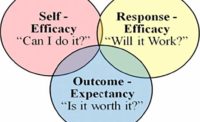So now you’re on the receiving end of a barrage of cynical and disturbing statements. A troubled coworker might do something extreme. His attitude could trigger behavior that puts him and others at risk of personal injury.
So it’s critical to react appropriately. You could defuse a volatile state of mind and possibly prevent a serious injury, or you could make a bad situation worse. What will it be?
This article offers guidelines for how to respond to these situations. Many readers will recognize these principles from workshops or seminars on basic communication skills. Even so, it’s worthwhile to refresh our memories and boost our personal motivation to apply these guidelines. It’s not always easy to be a good listener—what I call "actively listening"—but this is one way we actively care for safety and health.
Typical reactions
When someone says, "I’m quitting," "I’m going to get even," or "Wait ‘til I get my hands on him," these emotional threats bring out the adult counselor in us. Usually we’re ready with "quick-fix" advice. This advice comes from a selective interpretation of what we hear filtered through our personal views. So we proceed to tell the person what they should or should not do. Often we preface this unsolicited counseling with phrases like "If I were you," or "When I was in a similar situation, I..."Another common reaction to signals of distress is to probe for more details. We take a radical statement like "I’m going to quit" at face value and follow it by asking, "Why?" We’re trying to quickly get to the bottom or root cause of the person’s problem because we think we’ll be able to solve their distress if we know more about it. So we interrogate the individual, true detective style, with specific questions in order to evaluate the situation and provide advice.
We have a lot of practice with this questioning/counseling style, so much that it becomes a natural communication pattern. Think about your interactions with family members at home. Sometimes we know a family member, such as a young child, well enough to probe, evaluate, and counsel. But I bet this approach often misses the mark, even at home. Your verbal investigation often silences the other person, especially teenagers, and your premature guidance is frequently irrelevant and resisted.
Our initial interpretation and early advice are apt to be wrong and discarded because it’s distorted and one-sided. We’re talking about "autobiographical bias." You see, how we try to evaluate and guide others is based on our own experiences. We use "selective perception" to put what someone says into our personal frame of reference. We respond to what’s relevant to us, and base advice on our past experiences and biases.
This kind of reaction to another person’s problem is likely to be off the mark. Even if the well-intentioned advice is appropriate, it’s not likely to be accepted because it probably comes across as biased. It might even be perceived as cold, uncaring.
If we want people to listen to our advice and accept our guidance, we have to slow down, resist the quick response. It takes time to understand a problem or situation from another person’s perspective instead of our own. This requires active listening. We need to grasp the other person’s biased viewpoint before making interpretations and suggestions. We need to keep our own ego in check, allowing the other person to share their true perceptions and feelings. Premature probing, evaluating, and advising—a rush to judge, if you will—will probably cut the person off from revealing private thoughts and emotions.
It’s possible, even likely, that initial statements from a troubled coworker do not reflect the real problem. To say, "I’m quitting," is a broad reaction, and might even be an over-reaction to get your attention. Much more information is needed for you to possibly understand what’s going on and offer useful and acceptable advice.
Keep in mind, people are usually reluctant to reveal their deeper emotions—even to family members—even though we can’t really help unless there is such self-disclosure. To show you really care—to actively care—you need to reach a deeper level of understanding. And this requires you to be an engaged, empathetic listener.
Dale Carnegie wrote about the value of active listening more than 50 years ago in his classic book, How to Win Friends and Influence People. His wisdom is reflected in the writing of many contemporary authors, including Stephen Covey’s fifth habit of highly effective people, "Seek First to Understand... Then to be Understood." Carnegie, Covey, and others offer the same basic strategies for active listening; if you’ve had any training in effective communication, you’ve received the same advice.
I’d like to review these guidelines with four easy-to-remember words. In these "lean and mean" times of frustration and anxiety, we all need to be teachers and users of actively listening principles: ·
Repeat
This is the easiest technique to use. Simply mimic or repeat what you hear in the same words. This clarifies that you heard correctly, and most importantly, prompts the person to say more. Remember that the purpose of active listening is to motivate the other person to say more so you can truly understand the problem.
So if a coworker tells you he is quitting, you might repeat, "You’re quitting?" This shows you’re attentive and interested, and waiting for more information. Hearing how drastic the statement sounds, the person might reply, "Well, at least I feel like quitting." Then what would you say? Following this repeat technique, you would say, "You mean you feel like quitting?" Or, you might use different words to echo the same meaning. This is the next active listening technique.
Rephrase: Instead of mimicking what you hear, you might rephrase the words. In our example, you might say, "You mean you don’t like working here anymore?" By putting the statement in your own words, you show genuine interest while also asking for more information. You’re also checking for understanding. If you can rephrase the statement correctly, you have accurately received and interpreted what’s been said.
It’s possible your coworker miscommunicated or you misperceived something. Your rephrasing gives the other person a chance to explain. This is what you want—more disclosure of the problem.
Suppose he clarifies, "Well, it’s not that I don’t like working here, it’s just that my supervisor gets me so frustrated at times, I feel like quitting." Now he has revealed a more specific aspect of the problem. What do you say next?
You could use the repeat strategy and return with, "Your supervisor gets you frustrated?" Or you could attempt to rephrase with something like, "You mean your supervisor gets you so angry that your motivation to work is sapped?" Perhaps this statement calls for the next "R" of active listening—ratification. ·
Ratify
Here you demonstrate affirmation or support for the individual’s statement by confirming your understanding. Offer words that show empathy for what is being said, and this in turn, encourages more explanation. In our example, you might ratify your appreciation of the statement by saying, "I know the feeling, I’ve been frustrated with my supervisor at times and wonder whether my job is worth it."
At this point, you might be tempted to jump in with probing questions to find out more about the frustration, the supervisor, or the situation. What did your supervisor do that got you so upset? Why are you so frustrated that you want to quit?
Resist the temptation to get into gossipy details. More active listening could reveal problems beyond the supervisor. Perhaps it’s not the supervisor per se, but a particular job assignment. Or the problem might stem from interactions with another employee, or a family member, or from feelings of personal inadequacy, including a perceived loss of confidence, self-esteem, or personal control.
The bottom line is that a person’s distress signals can come from many sources, and these will probably not come to the surface quickly in one-to-one communication. And if the relevant causes of a problem are disclosed, it’s unlikely you could give advice that is both useful and acted upon. Usually, the best we can do is listen actively with repeat, rephrase, and ratify strategies in order to get the problem out in the open.
Ultimately, we want the person to express their true feelings. ·
Reflect
When people reflect their inner feelings about a situation, they are at the personal root of the problem. Such self-disclosure can lead to insight into the true cause of the problem for both the speaker and the listener, and suggest strategies for intervention. However, even with outer layers of the onion peeled away, it’s usually better to let the speaker consider various solutions.
If you’ve been an actively caring listener, you might eventually get the ultimate reward for your sensitivity, patience, and emotional intelligence. The speaker will ask you for specific advice. When you hear words like, "What do you think I should do?" you have mastered active listening. You have shown that you actively care, and now your direction will likely be most relevant, understood, and accepted.

